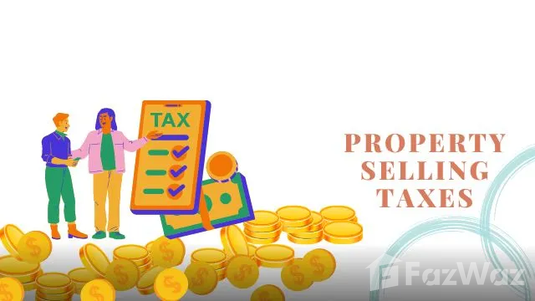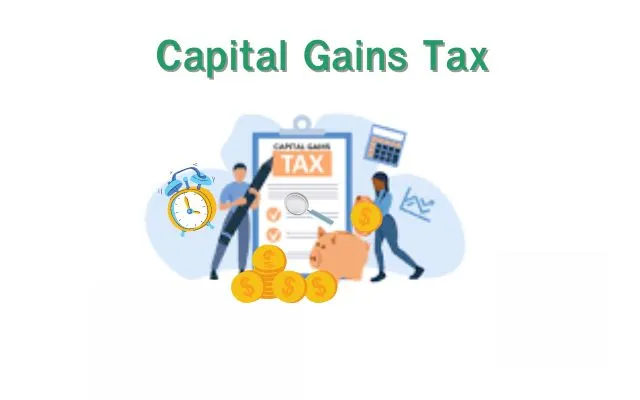- List your property - it's free
- Sign up or Log in
-
English- en
-
THB - ฿
- Buy
- Thailand Property For Sale
- Thailand Real Estate
- See Newest Listings
- Why Buy with FazWaz
- Rent
- Sell
- Projects
- Advice
- Property Management
- Vacation Rental Management

Gaining a comprehensive understanding of the tax implications when selling properties is vital for property owners, particularly in Chiang Mai. This vibrant city in Northern Thailand boasts a bustling real estate market. Taxes play a significant role in shaping financial outcomes, and overlooking their importance can result in unforeseen expenses, legal complications, and penalties. By familiarizing themselves with the taxes associated with property sales, sellers can accurately assess their obligations, plan their finances, and ensure a seamless transaction. It is advisable to seek professional advice to navigate the intricacies of property selling, optimize outcomes, and make well-informed decisions. In this article, we will delve into property selling taxes, consider additional costs and factors, and explore the concept of capital gains tax for property sellers.
In Chiang Mai, Thailand, there are several property selling taxes that sellers should be aware of:
3.Stamp Duty
Understanding these property selling taxes in Chiang Mai is crucial for sellers to accurately estimate their financial obligations and fulfill their tax responsibilities during the sale transaction. It is advisable to consult with tax professionals or legal advisors to navigate the specific details of each tax and ensure compliance with the local regulations.
When selling a property, there are additional costs and considerations that sellers should keep in mind:
1.Agency Fees: If you choose to work with a real estate agent to sell your property, they will charge a commission fee for their services. Typical agency fees in Chiang Mai range from 3% to 5% of the property's selling price. It's important to discuss and negotiate these fees with the agent before entering into an agreement.
2.Legal Fees: It is recommended to engage a lawyer or legal representative to handle the legal aspects of the property sale. Legal fees can vary depending on the complexity of the transaction including the services provided. Typically, legal fees range from 1% to 2% of the property's selling price.
3.Other Costs: There are several other costs associated with selling a property that sellers should consider, including:
By considering these additional costs and factors, sellers can accurately estimate their expenses and plan accordingly. It's recommended to discuss these costs with professionals involved in the sale process, such as real estate agents, lawyers, property inspectors, and valuation service providers, to ensure transparency and make informed decisions.
Tax Exemptions and Reliefs in Chiang Mai can provide certain benefits for property sellers. Here are some key points to consider:
It is important to note that tax exemptions and reliefs may be subject to certain conditions and eligibility criteria. Consulting with tax advisors, lawyers, or relevant authorities is crucial to obtain accurate and up-to-date information tailored to your specific situation. They can provide guidance on available exemptions, reliefs, and benefits that align with Chiang Mai's tax regulations.

Capital Gains Tax (CGT) is a tax imposed on the profit earned from the sale of a property. In Chiang Mai, Thailand, the CGT is calculated based on the property's selling price and the duration of ownership. The property ownership period plays a significant role in determining the tax liability. Here are some key points to understand:
It is essential to consult with a tax advisor or legal professional to understand the specific CGT rates and exemptions applicable to your property sale in Chiang Mai. They can provide guidance on calculating the tax liability based on the property's selling price, ownership period, and other relevant factors.
Gaining a comprehensive understanding of the various taxes involved in selling a property is of utmost importance for sellers in Chiang Mai. This includes familiarizing themselves with the Transfer Fee, Specific Business Tax, Stamp Duty, and Withholding Tax. Armed with this knowledge, sellers can make informed choices, accurately forecast expenses, and ensure strict adherence to tax and legal requirements throughout the property selling process in Chiang Mai. For additional guidance and information, it is highly recommended that sellers seek professional advice from experienced real estate agents, knowledgeable lawyers, and proficient tax advisors. Their expertise will help sellers effectively navigate the intricacies of the property selling journey and ensure a smooth and successful transaction.